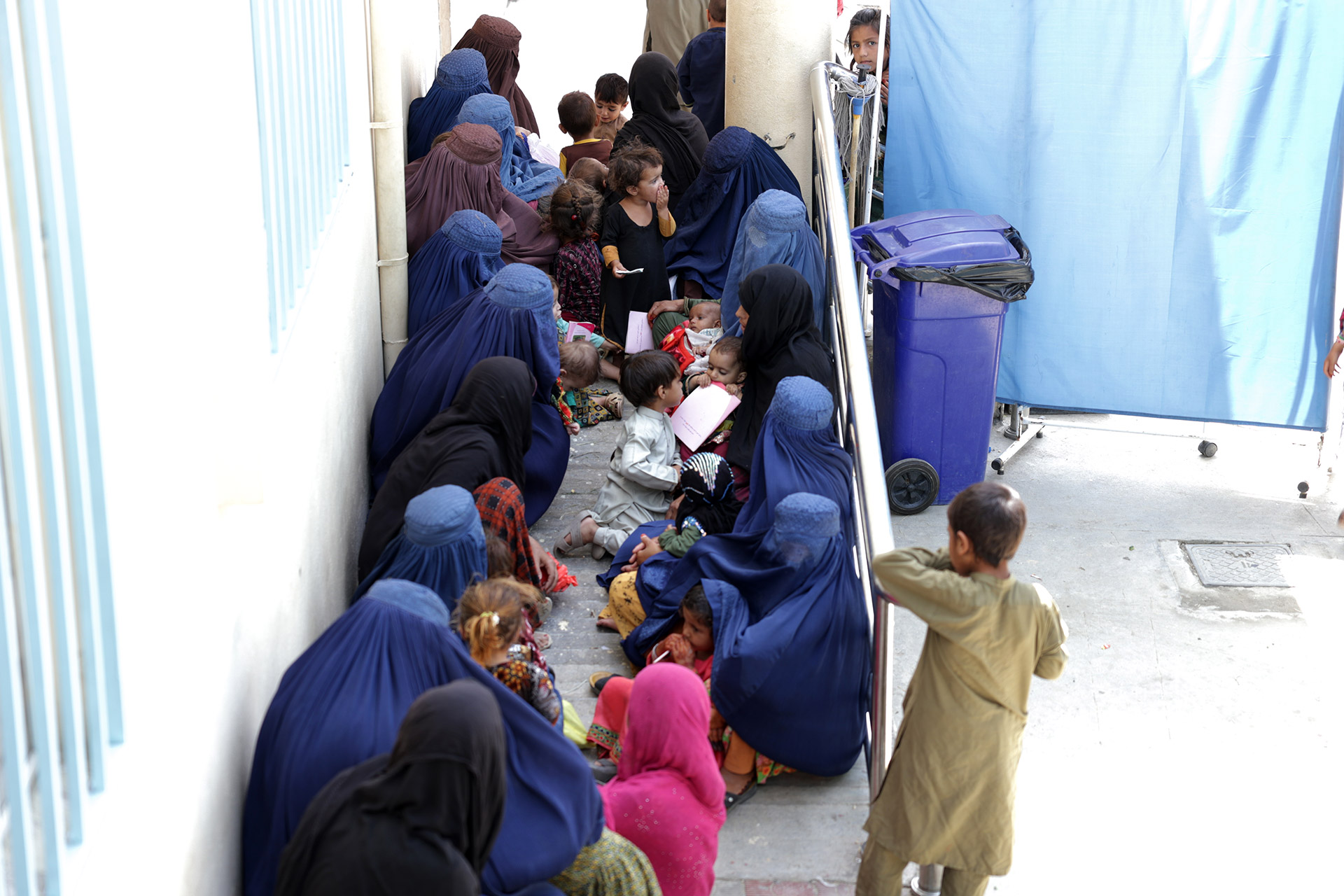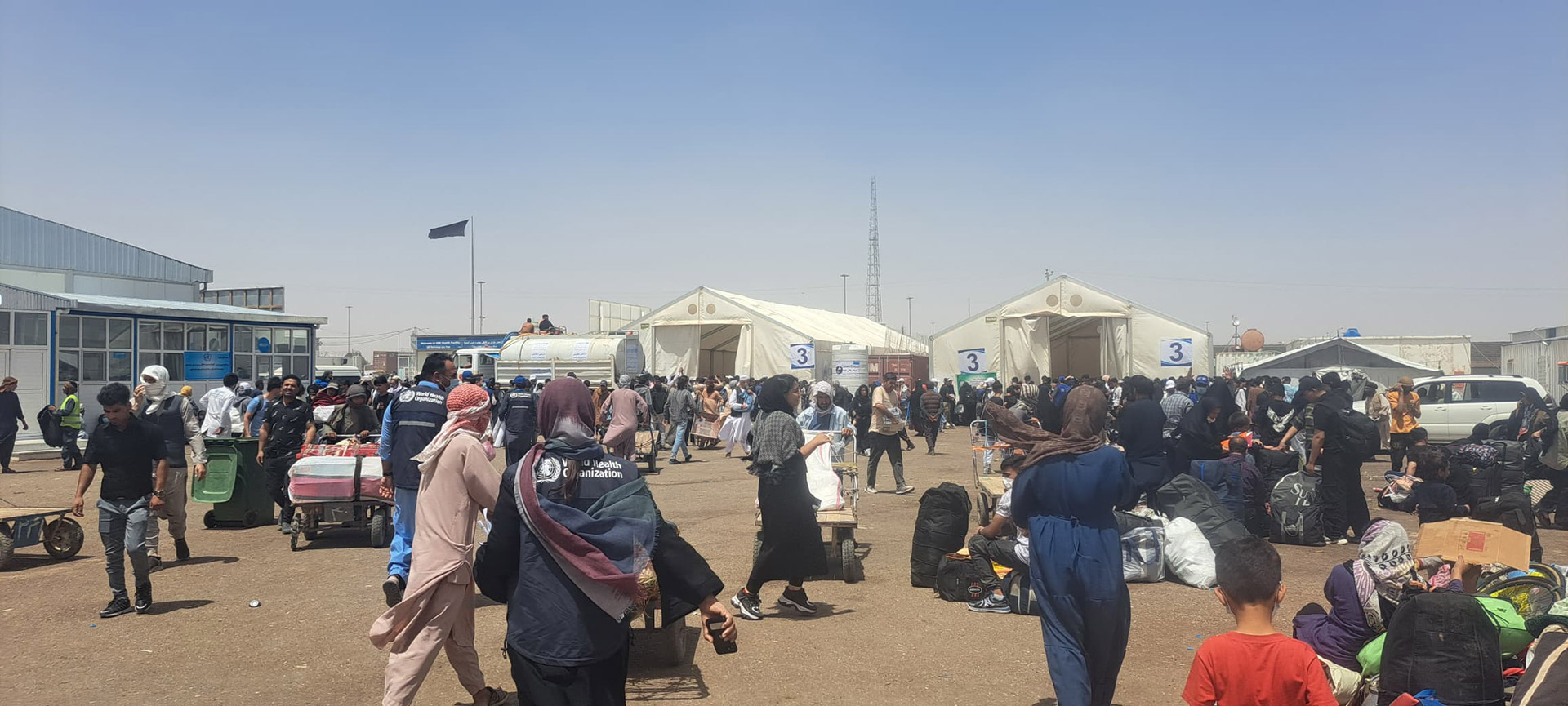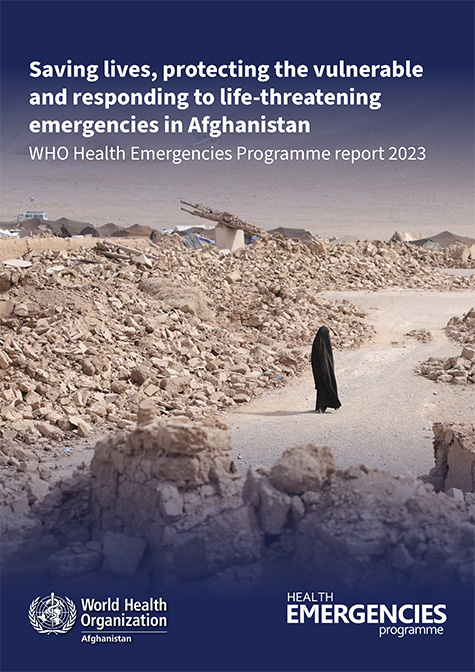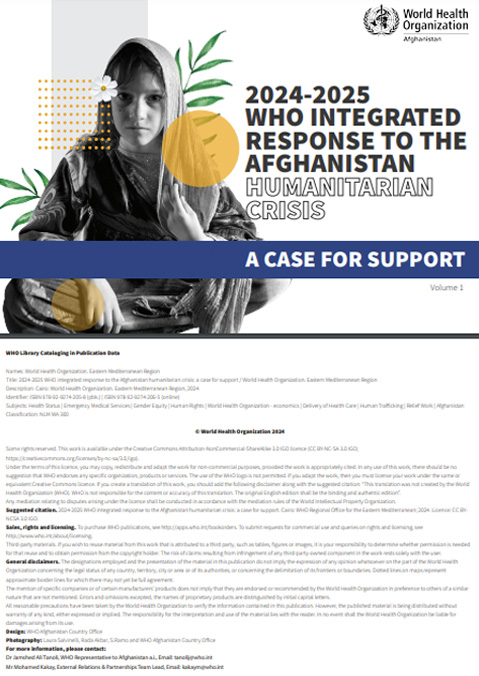8 July 2025, Kabul, Afghanistan – The World Health Organization (WHO) in Afghanistan is deeply concerned about the health needs of Afghan returnees, particularly women and children, who have been arriving in record numbers through border points with the Islamic Republic of Iran and Pakistan.
Since April 2025, more than 836 000 returnees have crossed into Afghanistan through official points of entry, including Islam Qala, Torkham, Milak and Spinboldak, in what has become one of the country’s most urgent humanitarian challenges.
 Women and children wait to receive essential health and humanitarian services at the Zero Point border in Nangarhar province on 12 May 2025. Photo credit: WHO
Women and children wait to receive essential health and humanitarian services at the Zero Point border in Nangarhar province on 12 May 2025. Photo credit: WHO
Returnees, including pregnant women, mothers with infants and unaccompanied children, arrive with little more than they can carry. Many are in desperate need of medical care, food and shelter. WHO-supported health teams are seeing a surge in wounds, infections, dehydration and undernutrition, particularly among children and the elderly.
With WHO support, more than 84 000 people have received basic health services at border crossings and reception centres. At Torkham alone, round-the-clock emergency care teams have treated over 850 injuries. In coordination with partners, WHO has administered 198 000 lifesaving vaccines, including polio and measles, helping protect vulnerable populations, especially children, against preventable diseases.
“We are challenged by the number of mothers, children and elderly persons returning to uncertainty, often unwell and unsupported,” said WHO Representative in Afghanistan Dr Edwin Ceniza Salvador. “We are doing everything we can but the scale of need is growing fast. Without urgent support, we risk losing the ability to respond where it matters most.”
 WHO on the ground at Islam Qala on 7 July 2025, providing critical health support to vulnerable returnees and families in need. Photo credit: WHO/Dr Rahimi, WHE Focal Point
WHO on the ground at Islam Qala on 7 July 2025, providing critical health support to vulnerable returnees and families in need. Photo credit: WHO/Dr Rahimi, WHE Focal Point
To date, WHO has deployed 17 mobile health teams and several prefabricated health clinics in high-flow areas. Screening teams have checked over 394 000 individuals for signs of illness. The most pressing needs are basic care, safe deliveries, maternal and child health support, mental health and psychosocial support services, clean water access and essential medicines.
Facilities at Milak and Islam Qala are overwhelmed. There are not enough ambulances, no proper isolation space and too few staff, especially women who are essential for caring for female patients.
WHO has laid out a US$ 2 million, 3-month operational plan but without additional funding key services such as immunization, emergency care and maternal and child health support to vulnerable women and children will face cutbacks.
WHO thanks its humanitarian partners and donors who have helped sustain the emergency response so far. With needs growing on a daily basis, it is more important than ever that we continue to stand together to protect lives and dignity in one of the world’s most difficult humanitarian settings.
For more information or to support WHO’s returnee health response, please contact:
Dr Jamshed Tanoli, Team Lead, Health Emergencies Programme
This e-mail address is being protected from spambots. You need JavaScript enabled to view it
, +93781764906
Ajyal Sultany, Head of Communications,
This e-mail address is being protected from spambots. You need JavaScript enabled to view it
, +93784812266













